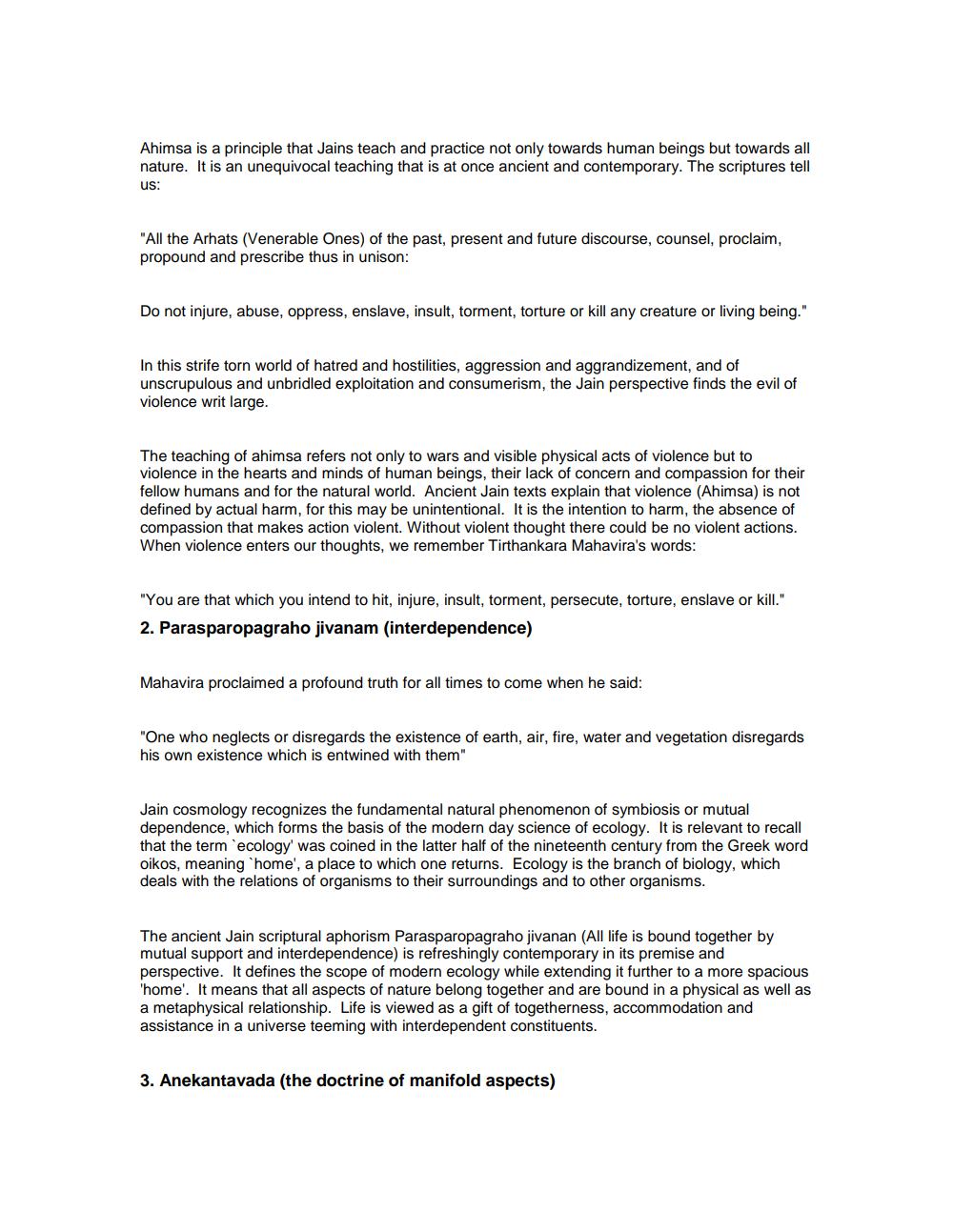Book Title: Jain Declaration Of Nature Author(s): L M Singhvi Publisher: L M Singhvi View full book textPage 4
________________ Ahimsa is a principle that Jains teach and practice not only towards human beings but towards all nature. It is an unequivocal teaching that is at once ancient and contemporary. The scriptures tell us: "All the Arhats (Venerable Ones) of the past, present and future discourse, counsel, proclaim, propound and prescribe thus in unison: Do not injure, abuse, oppress, enslave, insult, torment, torture or kill any creature or living being." In this strife torn world of hatred and hostilities, aggression and aggrandizement, and of unscrupulous and unbridled exploitation and consumerism, the Jain perspective finds the evil of violence writ large. The teaching of ahimsa refers not only to wars and visible physical acts of violence but to violence in the hearts and minds of human beings, their lack of concern and compassion for their fellow humans and for the natural world. Ancient Jain texts explain that violence (Ahimsa) is not defined by actual harm, for this may be unintentional. It is the intention to harm, the absence of compassion that makes action violent. Without violent thought there could be no violent actions. When violence enters our thoughts, we remember Tirthankara Mahavira's words: "You are that which you intend to hit, injure, insult, torment, persecute, torture, enslave or kill." 2. Parasparopagraho jivanam (interdependence) Mahavira proclaimed a profound truth for all times to come when he said: "One who neglects or disregards the existence of earth, air, fire, water and vegetation disregards his own existence which is entwined with them" Jain cosmology recognizes the fundamental natural phenomenon of symbiosis or mutual dependence, which forms the basis of the modern day science of ecology. It is relevant to recall that the term 'ecology' was coined in the latter half of the nineteenth century from the Greek word oikos, meaning 'home', a place to which one returns. Ecology is the branch of biology, which deals with the relations of organisms to their surroundings and to other organisms. The ancient Jain scriptural aphorism Parasparopagraho jivanan (All life is bound together by mutual support and interdependence) is refreshingly contemporary in its premise and perspective. It defines the scope of modern ecology while extending it further to a more spacious 'home'. It means that all aspects of nature belong together and are bound in a physical as well as a metaphysical relationship. Life is viewed as a gift of togetherness, accommodation and assistance in a universe teeming with interdependent constituents. 3. Anekantavada (the doctrine of manifold aspects)Page Navigation
1 2 3 4 5 6 7 8
